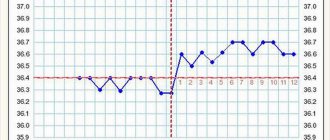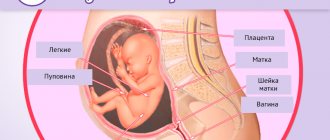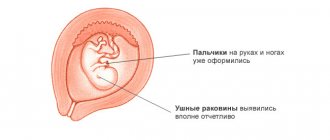What are the benefits?
Sometimes the benefits of having a child later in life can outweigh the benefits of having a child in your 20s or 30s.
- You are more prepared for motherhood and are moving towards it quite consciously.
- You may have already established your career and can devote more time to your child.
- You have a lot of life experience and will take a more mature and realistic approach to raising a child than young mothers.
- Your financial situation is most likely quite stable.
- You are convinced of the reliability of your partner, his ability to take care of you and the child.
Risks of late pregnancy
Thanks to technological advances in fertility, pregnancy and childbirth, it is quite possible to have a healthy baby by age 40. However, any pregnancy after 40 years of age is considered high risk. Therefore, your doctor should closely monitor you and the development of the fetus.
Risks of pregnancy after 40 years:
|
Late pregnancy | Pregnant at 40 | The joy of anticipation
What are the dangers of late pregnancy for a woman and her unborn baby?
The age limit for late childbirth is considered to be 35 years
, but the concept of “old-born” no longer exists in medicine, and subject to excellent health, you can successfully give birth even after 40 years. But you still need to know what the mother is risking - in order to take timely measures and eliminate all factors that could affect the pregnancy.
Risks for mom:
- Miscarriage
. The risk of such consequences after 30 years is 17 percent, and after 40 – already 33 percent. - Placenta.
The main problems are its premature detachment, presentation, and chronic failure. - Exacerbation of chronic diseases.
- Preeclampsia.
- Risk of developing diabetes in pregnant women.
- Multiple pregnancy.
After 35 years (and up to 39) the peak of twin births occurs. - Complications during childbirth
and often the need for a caesarean section (after 35 years - about 40 percent, after 40 years - 47 percent). - Bleeding.
- Arterial hypertension.
As for the risks for the baby himself, these include:
- Lack of weight.
- Risk of hypoxia
during childbirth. - Premature birth.
- Risk of having chromosomal abnormalities
.
Despite the frightening information about the complications of late pregnancy, statistics say that the majority of women who decide to have a late pregnancy give birth to absolutely healthy babies.
Possibility of getting pregnant after 40
One study found that couples who have regular unprotected sex will become pregnant within a year:
- about 7 in 10 women aged 30;
- about 6 in 10 women aged 35;
- about 4 in 10 women aged 40.
After 40 years of age it becomes increasingly difficult to get pregnant. But advances in fertility have been the driving force behind the increase in the number of women expecting children.
Some available options include:
- modern infertility treatment,
- ECO,
- freezing eggs at a young age to use them later,
- sperm banks,
- surrogacy.
But even with the use of auxiliary methods, a woman’s ability to conceive decreases significantly after 35 years. According to statistics, a third of couples after 35 years of age experience problems conceiving and bearing a child.
This is due to the fact that with age:
- fewer eggs are capable of fertilization,
- unhealthy eggs
- the ovaries do not release eggs properly
- increased risk of miscarriage,
- diseases that interfere with fertility have appeared.
The number of eggs (oocytes) decreases significantly after 35 years. According to experts, their number decreases from 25,000 at the age of 37 to just 1,000 at the age of 51. During puberty, a girl has between 300,000 and 500,000 oocytes.

Recording of the broadcast of “Radio Echo of Moscow”. Program “ECHOMED” topic: “Late pregnancy” T. Lyamzina - Hello, in the studio Tatyana Lyamzina, I welcome all our radio listeners, our guest today, a gynecologist-reproductologist at the Nova Clinic network of reproductive and genetics centers, Vera Malysheva. Vera Alexandrovna, good afternoon.
V. Malysheva - Hello.
T. Lyamzina - Today we will talk about late pregnancy. Vera, how serious is this problem in our time? At what age do women now come to reproduction centers for their first child?
V. Malysheva - The average age of women and men who became parents for the first time has increased. Recently, patients who have decided to become parents for the first time over the age of 35 are increasingly coming to see us. For many people, career, material, social fulfillment, and education come first. Well, anything, but not having children. Patients make appointments, even those over 50 years old. Of course, this is rather an exception, and the average age of patients is from 30 to 45 years. But, nevertheless, with the development of in vitro fertilization, we work with patients of late reproductive age.
T. Lyamzina - So what, is it really possible for a woman to give birth on her own at this age?
V. Malysheva - After 35 years, the chances of a natural, that is, independent, pregnancy begin to decline sharply every year. And if at the age of 35-42 we can still get our child genetically, then after 43 years these chances tend to zero. Therefore, if a woman is planning a pregnancy after 35 years, then the time for natural pregnancy should not exceed six months. If spontaneous pregnancy has not occurred within six months, then you need to contact a fertility specialist. The specialist will already suggest getting pregnant using in vitro fertilization.
T. Lyamzina - Let me remind you of your contacts, the Nova Clinic network of reproduction and genetics centers, phone number in Moscow 221-11-88, Moscow code 495. Well, what problems may arise for a mother over 40-45 years old? And, probably, the unborn baby may also have certain risks?
V. Malysheva - Yes, after 35 years, the quality of germ cells in women decreases, and the frequency of formation of an embryo with chromosomal abnormalities increases. For example, well, everyone knows about Down syndrome; it is associated with an extra 21st chromosome. With age, the risk of having children with this syndrome increases. If before the age of 30 the chances of having such a child are less than 1%, then after 40 years the birth of a child with this syndrome is one case in 63 children born. That is, according to statistics, we see a significant increase in frequency. In addition, deviations in the set of chromosomes may form, which can lead to the birth of children with other syndromes. Also, changes in chromosomes can lead to disruption of pregnancy. The purity of non-carrying pregnancies, that is, spontaneous miscarriages that do not develop pregnancies, is increasing. In addition to deterioration in the quality of eggs, chronic diseases are acquired with age. They can affect the course of pregnancy and the patient’s life in the future. These may or may not be diseases related to gynecology. Even if before planning a pregnancy, at first glance, a woman felt completely healthy, in the older age group, diseases that are first activated during pregnancy may appear more often. Therefore, such patients require an even more in-depth examination before undergoing an IVF program and carrying a pregnancy to term.
T. Lyamzina - Let me remind you of your contacts, the network of centers for reproduction and genetics “Nova Clinic”, phone number in Moscow 221-11-88, Moscow code 495. Well, we will continue to get acquainted with the network of centers for reproduction and genetics “Nova Clinic”, Our guest is gynecologist-reproductologist Vera Malysheva. Vera, what can modern medicine offer to prevent, say, the birth of a child with pathologies?
V. Malysheva - When conducting an IVF program, a patient of advanced reproductive age is recommended to undergo genetic testing of embryos. This analysis allows you to select embryos with the correct number of chromosomes even before pregnancy. That is, in advance, with an accuracy of more than 99%, it is possible to identify an embryo, the transfer of which can lead to the birth of a child, say, with Down syndrome, or the absence of pregnancy, or the failure to carry a pregnancy to term due to genetic abnormalities.
T. Lyamzina - Let me remind you of your contacts, the Nova Clinic network of reproduction and genetics centers, phone number in Moscow 221-11-88, Moscow code 495. Well, what should those who cannot conceive a child naturally, or with using IVF even after 40 years?
V. Malysheva - For patients over 40, more often even after 43 years, we recommend the use of donor oocytes. Since the chances of getting pregnant with their reproductive cells in this age group, unfortunately, tend to zero. Of course, cases of pregnancy with their own eggs at this age have been described, but they are rare, and this is rather an exception to the rule. Also, patients in the older age group often have contraindications to pregnancy, so surrogacy programs may be offered.
T. Lyamzina - Well, since we touched on this topic, is it possible to use surrogacy if a woman simply does not want to bear a child?
V. Malysheva - No, one reluctance to bear a pregnancy is not enough. There are strict medical indications for conducting a surrogacy program.
T. Lyamzina - Well, I think you can find out more about everything in your clinic, right?
V. Malysheva - Yes, of course, having signed up for a consultation with a reproductologist, we will tell you everything in detail, what they will have to do.
T. Lyamzina - Let’s remind the phone number again then. Phone in Moscow 495-221-11-88. And let's continue the topic of late pregnancy. Are there any developments that will make it possible to restore the ability to bear children at a later age? Maybe some modern developments are underway, tell us.
V. Malysheva - Yes, of course, this work is being carried out, but unfortunately so far it’s all at the experimental level and is not used in widespread practice.
T. Lyamzina - Such everyday questions, what about vitamins, some special medications? Do women give birth after menopause?
V. Malysheva - Nowadays, taking dietary supplements is very common. Women have great hopes for this, especially with a reduced supply of eggs. But unfortunately, there is currently no drug to restore ovarian reserve. If menopause has occurred, then with the help of drugs you can induce a menstrual-like reaction, prepare the uterus for pregnancy, but pregnancy can only be achieved by using donor oocytes.
T. Lyamzina - Let me remind you of your contacts, the Nova Clinic network of reproduction and genetics centers, phone number in Moscow 221-11-88, Moscow code 495. Well, what should young women do, the situation is the opposite, right? What if young women still want to pursue a career, education, and are not going to have a child in the next 10-15 years?
V. Malysheva - at a minimum, you need to consult a reproductologist. The specialist will prescribe the necessary examination, assess the woman’s reproductive potential, and if necessary, oocyte veterification programs will be recommended, this is the so-called delayed maternity program. This program allows you to freeze and store eggs at a young age in order to use them at a more mature age. Well, of course, if there is a need for this.
T. Lyamzina - Vera Alexandrovna, tell us a little about the capabilities of your clinics. What services do you provide, what specialists work, who can you contact, with what questions?
V. Malysheva - Well, the main direction of work of our clinics is assisted reproductive technologies. Also, the clinics conduct pregnancy management programs, examination of patients when planning pregnancy, and gynecological surgery. As for reproduction programs, right? That is, we work with patients of different age groups, we can carry out programs for delayed maternity, freeze your eggs, right? To benefit or in the future. It is possible to conduct programs with donor oocytes, that is, we have our own bank of oocyte donors. It is possible to conduct surrogacy programs.
T. Lyamzina - Let me remind you of your contacts, the Nova Clinic network of reproduction and genetics centers, phone number in Moscow 221-11-88, Moscow code 495. Do men come to you at the center, or is it still mostly women?
V. Malysheva - Well, in our country a single man cannot become a parent, right? This is prohibited by law, so the majority of appeals are either single women or couples, that is, they can be married or unmarried, right? And accordingly, we can help these individuals in achieving pregnancy. Men who want to become sperm donors apply the same way, right? That is, they undergo a thorough examination and can participate in these programs.
T. Lyamzina - Vera Aleksandrovna, and in conclusion, let’s sum up the results on the topic of late pregnancy. Tell us what a woman needs to do and how, point by point.
V. Malysheva - Well, regardless of the time when a woman plans a pregnancy, yes, that is, it is now or it is in the future, it is necessary to consult a reproductologist. If this pregnancy is planned in the future, then recommendations will be given on whether it is worth freezing the oocytes now, or simply conducting a preventive examination. If a woman is currently planning a pregnancy, then consultation with a reproductive specialist is also necessary. The specialist will prescribe the necessary examination, yes, analyze the results of all tests, and give recommendations on the optimal treatment regimen for getting pregnant, well, in general, in any age group.
T. Lyamzina - Well, thank you very much, I’ll remind you that Vera Malysheva, a gynecologist-reproductologist at the Nova Clinic network of reproduction and genetics centers, was in our studio today. And let us remind you once again the phone number, phone number in Moscow 221-11-88, Moscow code 495.
Planning a pregnancy at 40
All women need to take care of their reproductive health. And if you are over 40, then you need to pay more attention to your health. To minimize the possibility of risks during pregnancy and childbirth, follow a few simple tips.
Take prenatal vitamins
Look for vitamins that contain 400 mcg (0.4 mg) of folic acid. Start taking them before you become pregnant. This will help prevent some birth defects in your unborn baby (such as spina bifida).
Consult your doctor frequently
Get checked regularly. When planning a late birth after 40 years of age, undergo a full examination. Ask your doctor to help you choose the best vitamins for you. Consult with specialists if you have any questions about the progress of your pregnancy.
Check your chronic disease status
Make sure your chronic conditions are under control (such as diabetes or high blood pressure). Tell your doctor that you are planning a pregnancy, especially if it is a late first pregnancy, so that your doctor can adjust your treatment based on this fact.
Check your weight
If you have problems with excess weight, start sticking to a diet. Pregnant women who are overweight are more susceptible to various problems during pregnancy and childbirth.
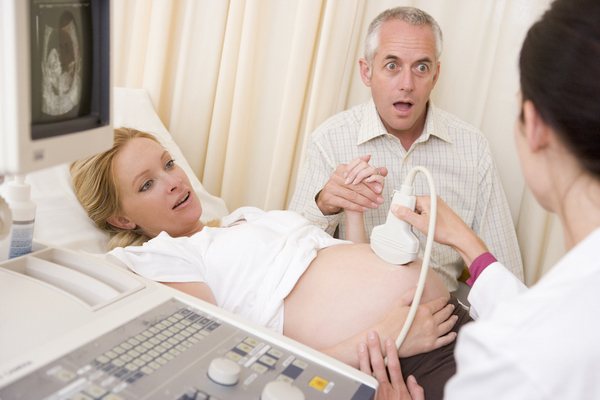
Review your diet
Pay more attention to what you eat. Your daily diet should be as varied and nutritious as possible. It is especially important that you consume enough folic acid.
Exercise regularly
Before pregnancy, get your body in order. Start playing sports. You can exercise at home, but if you can’t, go to a nearby fitness center.
You should have enough time for sleep and rest
It is very important to get enough sleep. If you sleep 8 hours or more but still feel tired, tidy up your bedroom. The TV, phone and laptop may need to be put away. During sleep, the body must rest.
Avoid alcoholic drinks and cigarettes
Drinking alcohol and smoking, even in the early stages of pregnancy, increase the likelihood of miscarriage and can also seriously undermine the health of the unborn baby. It is better to abstain from alcohol in the second half of the menstrual cycle. This is the time when ovulation occurs and the likelihood of getting pregnant increases.
Avoid or reduce stressful situations
Research by scientists shows that stress can lead to a lack of ovulation or a complete period, which naturally delays pregnancy.
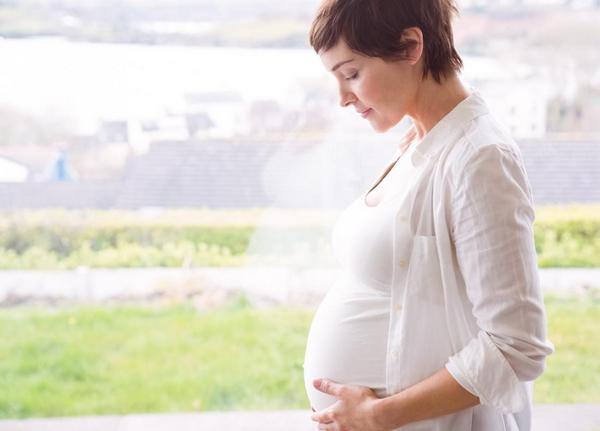
Why doesn't it work?
The process of conceiving can take some time, regardless of age. But if you're over 40 and have been trying to have a baby for 6 months without success, it might be time to see a family planning specialist.
Your doctor will do tests to determine if there are factors that may affect your ability to get pregnant. These may include an ultrasound to look at your uterus and ovaries, or blood tests to find out the functional reserve of your ovaries.
According to statistics, most women after 45 years cannot become pregnant naturally.
Alternative methods of conception
If you are having trouble conceiving, talk to your doctor about alternative options to see if any are right for you.
The most common:
- Hormonal drugs for infertility. They stimulate the ovaries, promoting successful ovulation.
- In vitro fertilization (IVF). Fertilization of the egg in the laboratory and subsequent introduction back into the uterus. This method is suitable for women who have problems with ovulation and for surrogate mothers. According to some reports, women between the ages of 41 and 42 have a success rate of 11%.
- Intrauterine insemination (IUI). This process, also called artificial insemination, works by introducing sperm into the uterus. Most often used for male infertility.
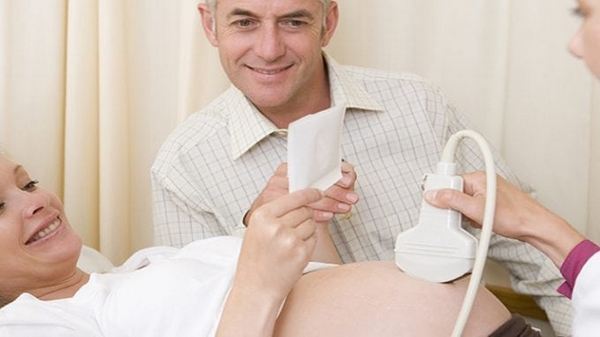
Pregnancy after 30: Pros and Cons
It’s no longer news that a woman after 30 can look amazing and become a mother. Perhaps in some respects this is even preferable. So, your career has taken place, you are not afraid of losing your qualifications and, perhaps, even see the opportunity to work “part-time” during pregnancy and the first months of your baby’s life. You stand confidently on your feet, and together with your husband you have decided to have a newborn. What do you need to know about pregnancy and childbirth if you are “a little over 30”?
Pregnancy of a woman after thirty years
A woman can safely carry and give birth to a healthy child at 30, 35 years old and even later. The key to success is the health of the mother and compliance with the recommendations of a competent doctor.
The ideal age for a woman to give birth to a newborn is considered to be between 20 and 28 years old. At this time, the female body is best prepared for the task of bearing, giving birth and feeding a baby. However, in recent years, more and more women are postponing having a child until later. First, they argue, you need to get a higher education, achieve certain heights in your career, achieve material well-being, and only then think about children. All these rational points lead to the fact that the birth of the first child is planned after 30 years.
If earlier women who became pregnant for the first time at the age of 30 were called old-age primiparas, now new mothers closer to forty are not uncommon. Although American scientists have calculated that the favorable age of a mother, at which it is recommended to give birth to a newborn, is now increasing to 34 years, our doctors, of course, are not delighted with this trend, because with age we do not become healthier; on the contrary, a bunch of chronic diseases appear. diseases, fertility decreases. This does not apply to all women. In each specific case, late pregnancy has its own characteristics.
And yet, pregnancy after 30 years - what is it like? Now we will try to understand this a little. And it is possible that at least one little heart awaiting its birth will have a real chance to live.
The main thing is health
The most favorable conditions for pregnancy are found in those women who deliberately postpone the birth of a child. As a rule, they monitor their health, take proper precautions, and plan their pregnancy in advance with their partner. Doctors are confident that if a woman is attentive to her health, has not had miscarriages or had abortions, then her pregnancy after 30 will be little different from pregnancy at 25 years old or earlier.
Possible difficulties
The fact that a woman took care of her health is wonderful, but, unfortunately, Mother Nature still rules here. So, nature arranged it this way; the possibility of getting pregnant after 30 is noticeably reduced. At this age, in women, the number of follicles in the ovaries decreases, and the number of anovulatory cycles increases. The susceptibility of the uterus to a fertilized egg decreases, and it cannot always implant successfully. Therefore, you should be prepared for the fact that it may take longer for a newborn to appear in your life than at 20 years old. Even if you don’t succeed in everything right away, remember that modern medicine has a reserve of techniques and technologies that allow a woman of almost any age to become pregnant, maintain and successfully resolve pregnancy.
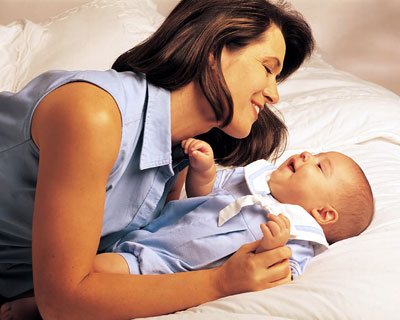
In addition, the number of chromosomal mutations increases with age. This means that the older a woman is, the greater the likelihood of having a child with genetic disorders. However, do not be afraid ahead of time. If neither you nor your husband have any hereditary diseases in your family, if you yourself are not carriers of pathological genes, and if you have not had miscarriages in the past, then the chances of giving birth to a healthy child are high. In any case, you should seek advice from a geneticist before conceiving a baby.
With age, the risk of developing late gestosis of pregnancy also increases. This is a serious complication of pregnancy. Your doctor may instruct you to monitor your blood pressure at home. This will make it easier to prevent or recognize the disease.
Let's tune in for the best
For a woman with late pregnancy, the general recommendations are almost the same as for young expectant mothers. One month before conception and the first three months of pregnancy, you should take folic acid. It reduces the risk of developing abnormalities of the nervous system in the baby. You may have to visit your obstetrician-gynecologist more often and get tested. But there's nothing wrong with that.
You have no right to risk the health of your unborn child. Trust an experienced doctor, because both your goal and his goal is a healthy mother and a healthy baby.
Try to organize your day correctly. Do gymnastics for pregnant women, yoga, swim, walk in the fresh air. Eat well; your diet should contain foods that contain all important microelements and vitamins (calcium, iron, magnesium, vitamins D, E, C). Try to sleep at least 8-9 hours a day. It is important for an expectant mother to get a good night's sleep. It is worth setting aside half an hour or an hour for daytime rest.
It is important not to be nervous and experience more positive emotions. Peace of mind and a positive attitude are the key to the fact that you will be able to bear and give birth to a beautiful, healthy toddler without any problems. Set yourself up for mandatory long-term breastfeeding of your baby. This is very beneficial for both your health and the health of your child.
Natural childbirth
Many women are sure that pregnancy after 30 years cannot end in natural birth. But this is a misconception! Yes, there are medical indications for a caesarean section, but the woman's age is not included in this list. If everything is within normal limits (pelvic size, blood pressure, test data, number of heartbeats in the baby, no serious illnesses), then you should not give up natural childbirth just because you are scared and you are afraid of pain. Do not deprive your baby of his first life experience of overcoming difficulties. This is very important for the development of a child’s character and his development as a person. It’s better to sign up for courses for pregnant women, where they will teach you how to breathe correctly and reduce pain, if any. Set aside time for activities that strengthen your pelvic floor muscles (Kegel exercises) and anterior abdominal wall.
Pros of late pregnancy
During pregnancy, many women bloom: this is due to the increased production of female sex hormones - estrogens. A woman who has given birth to a late child therefore feels and looks younger than her peers. Menopause in such women usually occurs later and is much easier.
A late child becomes an excellent incentive for their parents to be in excellent physical shape. After all, the baby needs an active father and mother who take part in fun games and respond to everything new.
Your age should not become a reason to give up the happiness of motherhood. Your psychological attitude is much more important than your age. Remember, motherhood is happiness, sometimes unexpected, sometimes long-awaited.
Author: Lana Based on materials from: Allwomens.ru
Estimate:
Rating:
Views: (9167)
Dear Guest! To leave a comment on this article, you must register.
RegisterThanks, later
Comments: 0 Replies: 0
Forum
Publish on your blog
Put it in your office
RSS
Features of late pregnancy
Just like the ability to get pregnant after 40, pregnancy itself can become more difficult as you age.
Older pregnant women often complain of pain in joints and bones, which lose their strength with age. They are also more susceptible to high blood pressure and gestational diabetes. Even pregnancy-related fatigue may become more severe as you age.
Talk to your OB/GYN about what else you can expect during pregnancy, depending on your age and overall health.
Influence of sea water
Sea water has a very beneficial effect on the human body. In addition to table salt, it is rich in salts of potassium, calcium and magnesium that we need so much. Sea water also contains copper and iron ions. But its most valuable “components” for the body of the expectant mother are iodine and selenium. Many people know that iodine has a positive effect on the development of the mental abilities of the unborn child, and selenium has a positive effect on the normal course of pregnancy.
Also, sea water, due to its high salt content, has an irritating effect on the skin, which causes the expansion of small blood vessels. Thanks to this, effective skin respiration develops when the body gives off carbon dioxide and absorbs oxygen with the help of skin cells. This in turn leads to improved metabolism, normalization of blood pressure, lowering blood sugar levels, and relieving swelling.
Childbirth in women after 40
Natural childbirth is unlikely after 40 years of age. This is primarily due to infertility treatments, which increase the risk of induced preterm birth. A woman may also be at increased risk of preeclampsia, which may require a caesarean section to save both mother and baby.
If you decide to have a natural birth at the age of 40, you should know that it will be more difficult. In addition, there is a high risk of stillbirth.
Many women successfully give birth to healthy children aged 40 years and older. Talk to your doctor about what to expect and have a backup plan. For example, if you plan to have a vaginal birth, talk to your partner and family about what help you will need if you do need a caesarean section.
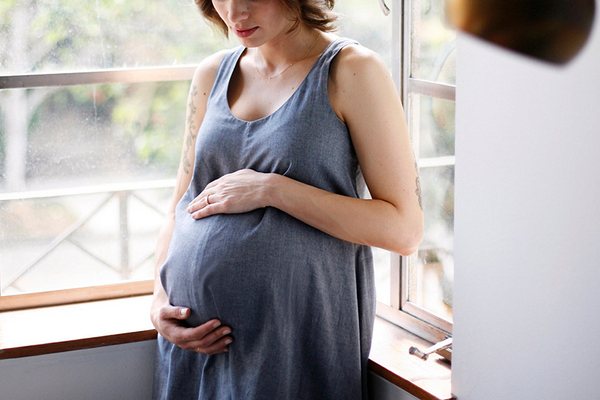
Some more opinions from doctors
For some women, pregnancy at 40 may not occur immediately. However, your fertility specialist will need to take action quickly as birth rates drop sharply after age 40.
If you are unable to get pregnant naturally, you should consider whether you are willing to undergo multiple attempts at fertility treatment and whether you have the funds to cover this treatment.

Susan Sarandon
She gave birth to a daughter at 39 years old and two sons - at 42 years old and at 45 years old.
Fotodom / Rex Features
Susan Sarandon got married for the first time (to actor Chris Sarandon) at 23 years old. They lived in a childless marriage for twelve years - doctors diagnosed the actress with infertility. Susan made up for lost time by turning into her fifth decade. From director Franco Amurri, she gave birth to a daughter, Eve, and three years later, a son, Jack, was born, whose father was Sarandon’s co-star in the film “Bull Durham,” Tim Robbins. Three years later, their son Miles was born.
“When I got pregnant, no one could understand how it happened. I didn't use birth control for many years because doctors said I was infertile. It was definitely a moment of happiness and feeling stronger than any diagnosis,” Sarandon shared.
Courteney Cox
Gave birth to a daughter at 40
East News / Splash News
The star of the series “Friends” became a mother for the first time at the age of 40: she gave birth to a daughter, Coco, with actor David Arquette. Three years before the girl was born, Courtney had a miscarriage, and she suffered another seven after the birth of her first child.
“I’m ready for my second child because the clock is ticking. If I were 34, I would have waited another year. I want Coco to have a brother or sister. Raising one child is difficult. It’s probably even harder with two,” Cox, 45, said in an interview six years ago. Unfortunately, Courtney never gave birth to a second child.


